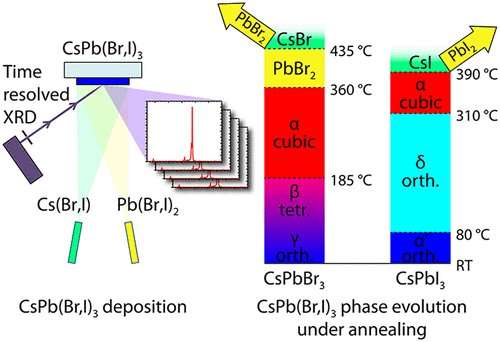Scientists at the Martin Luther University Halle Wittenberg have investigated a new process for perovskite cell production, which they say could allow for creation of perovskite thin film layers with better long-term stability than others have achieved.
The process, co-evaporation, is already widely used in other industries. It consists of heating precursor materials in a vacuum, until they evaporate, and then growing a layer of crystals onto a colder glass substrate.
“The advantage of this method is that every part of the process can be very well controlled,” explains lead author of the study Paul Pistor. “This way, the layers grow very homogeneously, and the thickness and composition of the crystals can be easily adjusted.”
The process described in the paper Crystal Phases and Thermal Stability of Co-evaporate CsPbX3 (X=I, Br) Thin films, published in the journal of Physical Chemistry Letters. The team was able to produce perovskite layers which did not decay until reaching a temperature of 360°C. Using x-ray analysis, the team also observed the growth and decay processes in real time.

Image: ACS
Perovksites have been an important area of research in solar for the past several years, with research institutes and companies working hard to overcome weaknesses in the material that prevent its commercial use. The researchers in this paper say that they were able to gain important insights into this growth and decay through their observations, and that their research points to a process which could be applied to large-scale manufacturing.
This content is protected by copyright and may not be reused. If you want to cooperate with us and would like to reuse some of our content, please contact: editors@pv-magazine.com.




A comprehensive video review on perovskite solar cells by Henry Snaith: https://scivpro.com/manuscript/10_32386_scivpro_000004/.
Stability issues are discussed including how perovskite solar cells behave under concentrated sunlight, and actually stability is not really an issue.